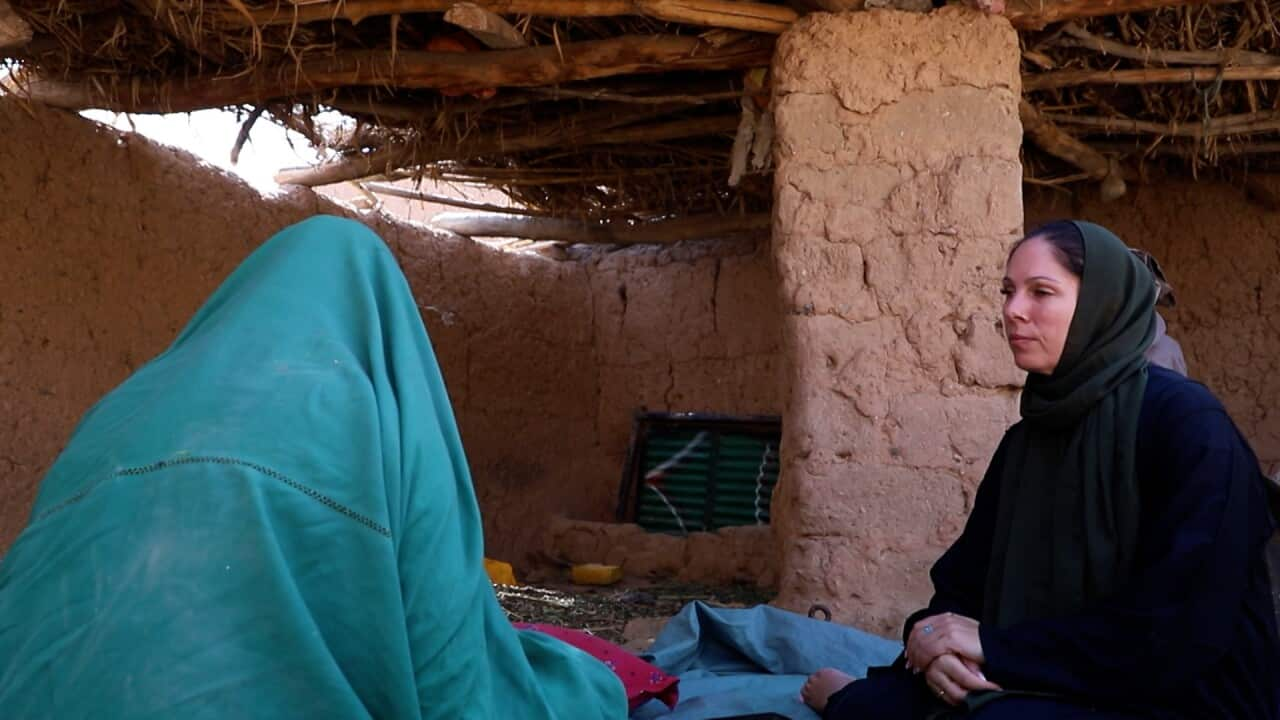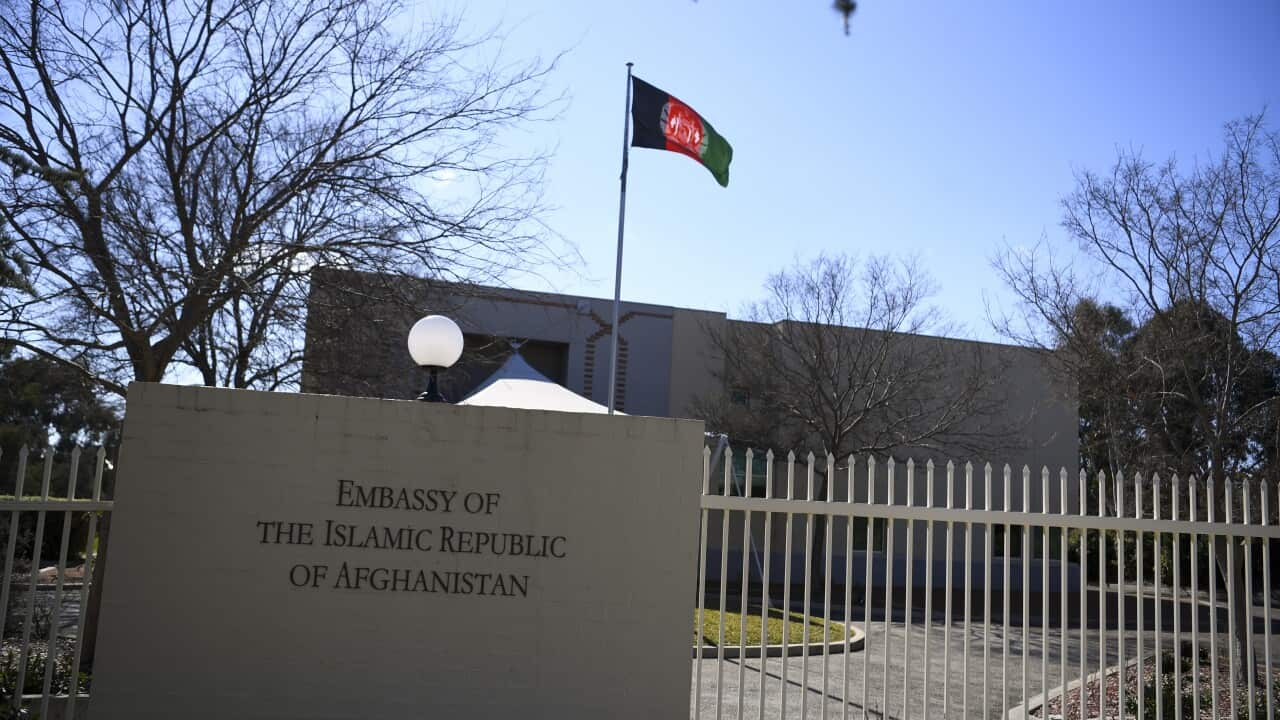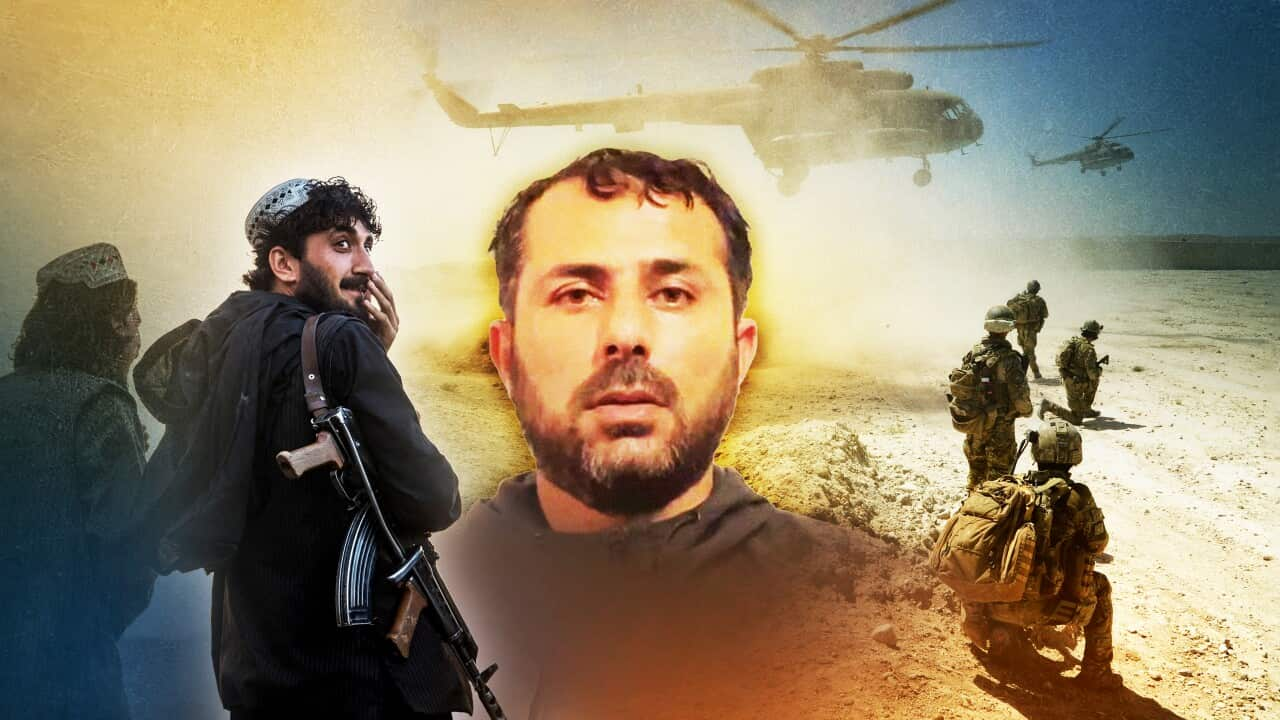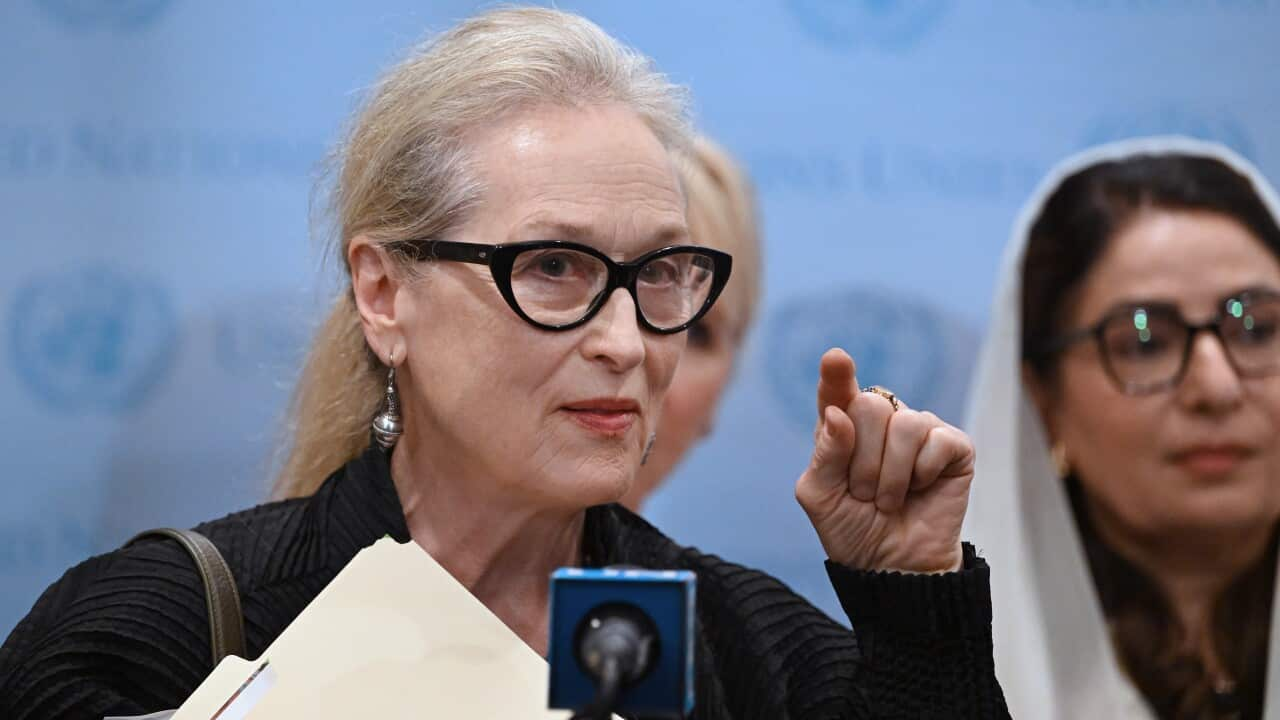On 11 September 2012, Australian SAS soldiers in Afghanistan were hunting a killer.
Two weeks earlier, a rogue Afghan soldier called Hekmatullah had shot dead three Australian troops playing cards at their base.
Australia's most decorated soldier, the now-disgraced Ben Roberts-Smith, was part of the hunt to find him.
Acting on intelligence, Roberts-Smith and fellow special forces soldiers had first raided the village of Sola and an imam and his adult son were shot dead. An internal Australian Defence Force (ADF) investigation at the time found these killings were justified.
Stream free On Demand

Murder In Afghanistan: Trouble With The Taliban
episode • Dateline • Current Affairs • 29m
episode • Dateline • Current Affairs • 29m
Continuing their hunt for Hektmatullah, Roberts-Smith and a team of Australian SAS soldiers later helicoptered into the remote village of Darwan in Uruzgan Province.
When the soldiers left, three Afghans — including a farmer named Ali Jan — lay dead.
Until recently, Darwan and its surrounding areas were considered too dangerous even for local Afghan journalists to access.
That was until Australian journalist and anthropologist Dr Michelle Jasmin Dimasi travelled there to interview local witnesses at the killing scenes, and to pave the way for SBS Dateline’s visit.

The cliff in remote Darwan - the site of Ali Jan’s death.
Alleged war crimes
Ali Jan’s death became a point of focus of Roberts-Smith's failed defamation action against several publishers, who had branded him a 'war criminal'.
Last June, Federal Court Justice Anthony Besanko found it was 'substantially true' Roberts-Smith had kicked Ali Jan, handcuffed, off a small rocky cliff before he was shot dead on Roberts-Smith's orders.
Roberts-Smith and another soldier denied this version of events during the trial, saying they only shot a legitimate enemy seen using a radio. Roberts-Smith is currently appealing his failed defamation case.
The two other deaths in Darwan that day did not involve Roberts-Smith and were not part of the defamation case.

Ben Roberts-Smith, Australia's most decorated soldier, was part of the hunt for Hekmatullah, who had murdered three Australian soldiers. Source: Getty / Stefan Postles
First journalist in Darwan
Dimasi spoke to locals in Darwan and heard accounts of those who say they saw the killing of Ali Jan.
Local farmer Shahzada told Dimasi he had seen a soldier kick Ali Jan off the cliff.
"When we came close, he was shot and lying down, with blood flowing from his mouth," he said.
Shahzada was a video-link witness at Roberts-Smith’s defamation trial. The judge said he approached Shahzada’s account with caution, but accepted aspects of it.

Farmer Shahzada gave testimony in the Roberts-smith defamation trial via video link as a witness to the killing of Ali Jan.
The almond room
The two other men killed by Australian SAS soldiers in Darwan that day were shot in a small building used to store almonds.
Those two men were Ali Jan’s father-in-law, Yaro Mama Faqir, and a man named Haji Nazar Gul.
The soldiers who shot them gave their version of events during Roberts-Smith’s defamation trial.
The soldiers, identified in the trial as 'Person 32' and 'Person 35', said the men were found separately from other villagers, legally engaged and lawfully killed under the rules of engagement.
Person 32 said the men were armed and "posed a threat".
Locals in Darwan dispute this claim, instead saying the villagers were all detained together.
They say Yaro Mama Faqir and Haji Nazar Gul were brought separately into the almond room before being shot dead.

Sayed Hamid gave his account of the events leading up to the killings from the almond room where the men were killed.
He said the Australian soldiers slapped Haji Nazar Gul and knocked off his turban before they led both men away.
Dimasi spoke to Yaro Mama’s sister, Shawo, who described finding the men’s bodies on the floor of the almond room.
She says the pair were "poor men sitting in their own house" and the Taliban were not around.

Yaro Mama’s sister, Shawo, found the bodies of the men in the almond room.
"They were beaten, they were shot."
Shawo says her brother was shot in the back of the head, while Haji Nazar Gul was shot in the side of his abdomen.
"The blood was gushing, like a container leaking and spilling away."
In accordance with the Geneva Convention, it is a war crime to harm a person that has been detained.
During the Roberts-Smith defamation trial, Person 35 confirmed that he was under investigation for war crimes but denied any wrongdoing.
The pursuit of justice
In 2020, the Brereton report into alleged war crimes committed by the ADF found credible evidence that in 23 incidents, 39 Afghans were unlawfully killed, either by Australian special forces members or at their direction.
No Australian soldiers have been criminally convicted for their actions in Afghanistan.
The locals told SBS Dateline they want to give witness statements, but no investigators have visited the village to collect them.
The Office of the Special Investigator (OSI), which was established in response to the Brereton report, has said it will not travel to Afghanistan due to safety concerns.
The OSI is working with the Australian Federal Police to investigate allegations of war crimes but there has been slow progress.
Ben Saul, the UN Special Rapporteur for Human Rights and Counter-Terrorism, told Dateline the testimonies of Afghan witnesses could be "absolutely decisive" in ensuring war crime convictions.
Saul says that while it is "possible to safely travel to Afghanistan" Australian investigators could also secure witness testimonies through other means, such as by video-link, through foreign lawyers in the country or intermediaries like the United Nations.
The family left behind

Ali Jan’s widow, Bibi Dhorko, and her family say they are destitute since the death of her husband.
Dhorko says the family has been left destitute by the loss of their primary breadwinner and the children now work as labourers picking cotton.
"Now, we want justice," she said.
However, no pathways for justice have ever been given to Bibi Dhorko.
Saul said victims of crimes allegedly committed by Australian soldiers need to be involved in criminal procedures so they can: "feel like they’re seeing justice be done in the Australian courts".
Saul said he is concerned about the length of time it has taken to investigate allegations of war crimes in Afghanistan and says Australia needs to "pull out all stops" to pursue justice.
"But if you think about it in ordinary Australian terms, we would never allow somebody accused of murder to walk the streets in Australia for over a decade without being arrested and facing trial."
The accounts of Shawo and Sayed Hamid have not been tested in court.
In response to Dateline’s questions the OSI said, "all investigations are being progressed as expeditiously as possible."
"These are very complex matters which necessarily take a significant amount of time."












